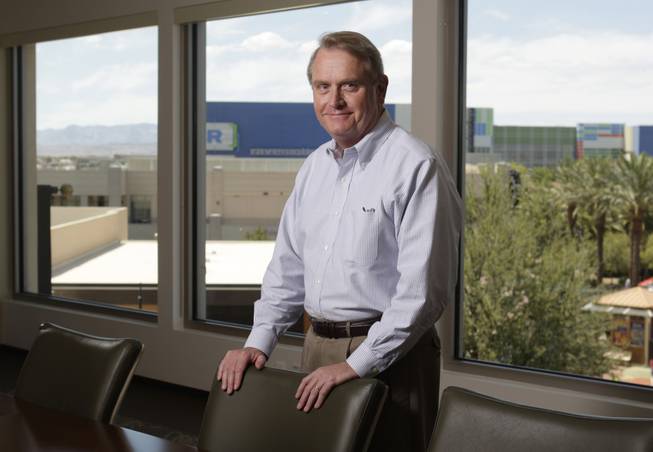
Matt Crosson, president and CEO of the Las Vegas Chamber of Commerce, says economic diversification needs to be a priority.
Saturday, Aug. 21, 2010 | 2 a.m.
When Las Vegas Chamber of Commerce officials went looking for a new president last year, their checklist was long: experience with economic development and diversification, education, a large business organization, workers’ compensation and health care plans.
They found Matt Crosson, who spent 16 years as CEO of the Long Island Association Inc., New York’s largest business organization. He had also served on the New York state board charged with restructuring K-12 educational standards.
Crosson joined the Las Vegas Chamber in April.
Unemployment and the economy are the biggest challenges facing Southern Nevada. What can the chamber do to help fix these problems?
I think it’s going to be some time before cash begins to flow back into Las Vegas from visitors at the same level that this place is used to. Meanwhile, there are things that Las Vegans can do to help each other, if everybody in Las Vegas remembers one simple thing: If you spend your money here, rather than going online or going to a catalog or leaving this place, that money circulates here. It allows those small businesses to survive and possibly to hire some people.
Diversifying the economy is viewed as a necessity. What ideas are you proposing to diversify the economy?
The purpose is to focus on industrial clusters that can have a competitive advantage because they are in Las Vegas. What I mean by industrial clusters are main companies that attract other companies that altogether attract talented younger people to the community. You have to figure out what those industrial clusters are. We may think that an industry might work here for whatever reason — we have a lot of sun here. We may think that gives us an advantage when it comes to solar energy. In the production of solar energy, it probably would. But would it give us an advantage in the manufacturing of solar-energy equipment? Are there other places in this country that are way ahead of us when it comes to those kinds of industries? We need to know that.
Advocates for better schools say more money is needed for education and that we’re not going to diversify the economy without better schools. What’s your take on this?
I agree that you cannot diversify this economy without schools that have a better reputation than our schools. It would be very difficult to bring companies and their employees from other parts of the country if they think that the school system is inadequate.
Whether more money by itself is the solution is a separate question. The argument can be made that, yes, more money will produce better education. But there’s also a considerable amount of evidence to the contrary. The Washington, D.C., school district is always used as the example. It spends more per capita on education and gets the worst outcomes in the country.
Where does higher education fit in?
In conjunction with what we’re saying about K-12 education, higher education also is going to be critically important to economic diversification. That means both UNLV and other higher-education institutions and the community colleges. At the highest level, we want a fully funded research university with a terrific reputation and in many ways, UNLV already has that. I think it needs more support from the business community and more support from government. In addition to that, the community colleges provide the kind of training and instruction that is indispensable for many, many companies. So the two go hand in hand.
What do you view as the biggest issue for the 2011 Nevada Legislature?
There are two issues: One is how to balance the state’s budget without undermining the economic recovery of the state. At the same time, I don’t think the state can allow more time to pass before it positions itself where it needs to be economically and that includes education and transportation infrastructure. I don’t think you can just deal with the deficit and kick the can down the road on where the state’s economy is going and how we deal with education.
In the past the chamber opposed tax increases. Is this the position going forward or will the chamber moderate its position?
The chamber will definitely be opposed to a generalized business tax if it’s going to fall on small businesses. It makes no sense whatsoever in the economic circumstances in which we find ourselves to make it more difficult for small businesses to hire people because that’s where job creation is going to take place. Most, if not all the state-level politicians I have spoken with agree with that.
For a longer version of this interview, see In Business Las Vegas.

Join the Discussion:
Check this out for a full explanation of our conversion to the LiveFyre commenting system and instructions on how to sign up for an account.
Full comments policy